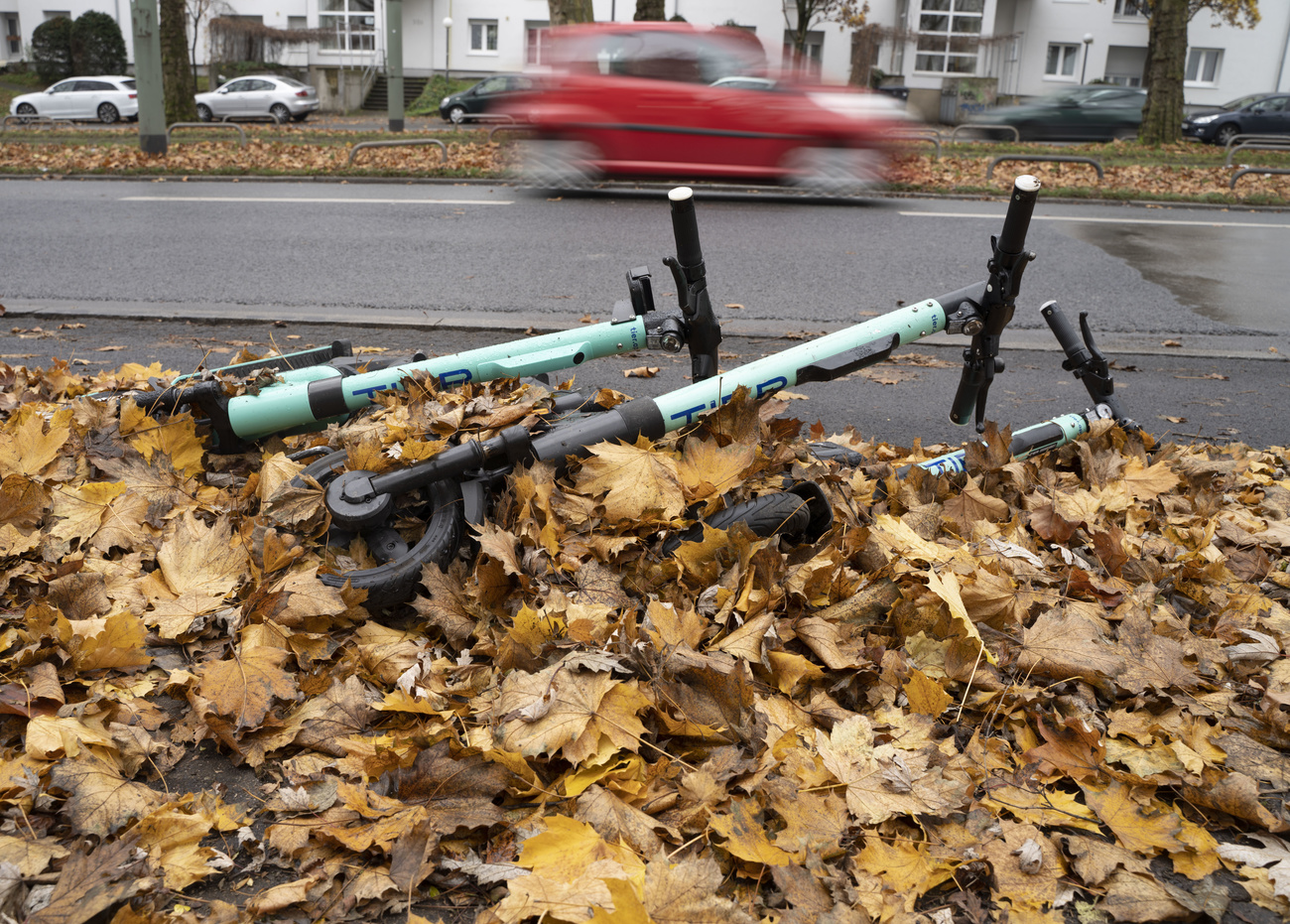
E-scooter accidents more common than assumed

The real number of e-scooter accidents in Switzerland is likely more than ten-fold the cases reported to police, according to estimates from an insurance company.
The police are called around 200 times a year when there are prangs involving e-scooters, says the NZZ am Sonntag newspaper. But Swiss insurance company Suva believes the actual number of cases was at least 2,400 last year.
And that’s a conservative estimate of accidents that caused injury or damage.
“Many accident reports provide a superficial description and only write about a scooter accident,” a Suva spokesperson told the newspaperExternal link. “We therefore assume that we simply do not know about many e-scooter accidents.”
The number of accidents has increased as e-scooters gained in popularity and became available for hire. Suva estimates that the number of accidents in Switzerland saw a spike from around 100 in 2018 to 800 in 2019. And the rising trend only accelerated in the following two years.
The majority of accidents involve men aged between 25 and 44. In more than a third of cases, alcohol plays a role in accidents if the e-scooter user is at fault, says the Swiss Council for Accident Prevention.
“With small tires, a powerful engine, high speeds and resulting instability with a high centre of gravity, there is a high potential for accidents,” warns the Federal Roads Office.
The authorities are also alarmed by the growing number of illegal models that exceed the 20kmph speed limit and motor power of 500 watts.

In compliance with the JTI standards
More: SWI swissinfo.ch certified by the Journalism Trust Initiative






























You can find an overview of ongoing debates with our journalists here . Please join us!
If you want to start a conversation about a topic raised in this article or want to report factual errors, email us at english@swissinfo.ch.